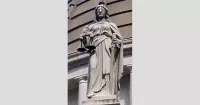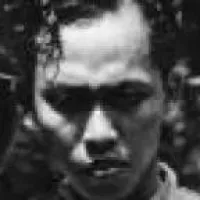Vanuatu, officially the Republic of Vanuatu, is a Melanesian island country in the South Pacific Ocean. It is an archipelago of volcanic origin, situated east of northern Australia, northeast of New Caledonia, east of New Guinea, southeast of the Solomon Islands, and west of Fiji.
1906: French settlers outnumber the British
By 1906, French settlers (at 401) outnumbered the British (228), almost two to one, as the French government actively encouraged French settlement.
1906: Australia bars 'blackbird' labourers
In 1906, Australia barred any further 'blackbird' labourers, contributing to the gradual winding down of the long-term indentured labour trade.
1906: France and UK agree to administer the islands jointly
In 1906, France and the United Kingdom agreed to jointly administer the islands as the Anglo-French Condominium of the New Hebrides.
1906: Anglo-French Joint Naval Commission ends
In 1906, the Anglo-French Joint Naval Commission period ended, which had been established to protect French and British citizens without jurisdiction over internal native affairs.
1906: Anglo-French condominium agreement
In 1906, the Republic of France and the United Kingdom agreed on a framework for jointly managing the archipelago of Vanuatu as the New Hebrides through an Anglo-French condominium.
1909: M7 Earthquakes
Vanuatu experiences relatively frequent earthquakes. Of the 58 M7 or greater events that occurred between 1909 and 2001, few were studied.
1910: Fiji bars 'blackbird' labourers
In 1910, Fiji barred any further 'blackbird' labourers, contributing to the gradual winding down of the long-term indentured labour trade.
1913: Samoa bars 'blackbird' labourers
In 1913, Samoa barred any further 'blackbird' labourers, contributing to the gradual winding down of the long-term indentured labour trade.
1914: Anglo-French Protocol
In 1914, the Condominium's authority was extended via the Anglo-French Protocol in an effort to curb the worst of the abuses.
1922: Formal ratification of the Anglo-French Protocol
In 1922, the Anglo-French Protocol of 1914 was formally ratified, although labor abuses continued, and Ni-Vanuatu were barred from acquiring citizenship of either power.
1929: Large Vietnamese population
By 1929, there were approximately 6,000 Vietnamese people working in plantations in the New Hebrides.
1929: Vietnamese community was 10% of Vanuatu's population
In 1929, the Vietnamese community in Vanuatu comprised 10% of the country's population.
1940: Britain gains authority
In 1940, the fall of France to Nazi Germany allowed Britain to gain a greater level of authority on the islands.
December 1941: Attack on Pearl Harbor
In December 1941, following the Japanese attack on Pearl Harbor, the United States joined the war on the Allied side.
April 1942: Japan advances
By April 1942, Japan had advanced rapidly throughout Melanesia, leaving the New Hebrides on the frontline of any further advance.
May 1942: US troops stationed
From May 1942, US troops were stationed on the islands of the New Hebrides, where they built infrastructure on Efate and Espiritu Santo.
1943: Reoccupation of Solomons
With the successful reoccupation of the Solomons in 1943, the New Hebrides lost their strategic importance during World War II.
1945: Volcanic Eruption
In 1945, a volcanic eruption occurred in Vanuatu.
1945: US withdraws
In 1945, the Americans withdrew from the New Hebrides, selling equipment at bargain prices and dumping the rest in the sea.
1946: Repatriation of Vietnamese workers
In 1946, most of the Vietnamese indentured workers were repatriated from the New Hebrides.
1957: Advisory Council set up
In 1957, an Advisory Council was set up containing some Ni-Vanuatu representation, though it had little power.
1963: Final Vietnamese repatriation
In 1963, another wave of Vietnamese workers were repatriated, though a small Vietnamese community remained in Vanuatu.
1963: Indonesia integrates West Papua
In 1963, the Western New Guinea or West Papua region became part of Indonesia.
1966: Nagriamel movement founded
In 1966, the Nagriamel movement was founded by Chief Buluk and Jimmy Stevens on a platform of opposing land clearances and promoting Ni-Vanuatu-led economic development.
1967: Arrest of Buluk and Stevens
In 1967, Buluk and Stevens were arrested by the authorities, prompting them to press for complete independence upon their release.
1970: Near-universal primary enrollment
By 1970, primary enrollment in schools had greatly increased to be near-universal as part of a campaign of modernization and economic development.
1971: New Hebrides National Party established
In 1971, Father Walter Lini established the New Hebrides Cultural Association, later renamed the New Hebrides National Party (NHNP), to achieve independence and oppose land expropriation.
November 1974: Agreement to create New Hebrides Representative Assembly
In November 1974, the British and French agreed to create a New Hebrides Representative Assembly.
November 1975: First election for the New Hebrides Representative Assembly
In November 1975, the first election took place for the New Hebrides Representative Assembly, resulting in an overall victory for the NHNP.
November 1976: Assembly convenes
In November 1976, after delays and fresh elections in disputed areas, the New Hebrides Representative Assembly finally convened.
March 1977: Joint conference in London
In March 1977, a joint Anglo-French and Ni-Vanuatu conference was held in London, agreeing to hold fresh Assembly elections and an independence referendum in 1980.
1977: Cruise ship arrivals reach 40,000
By 1977, cruise ship tourism in the New Hebrides had grown rapidly, with annual arrivals reaching 40,000.
1977: NHNP renamed Vanua'aku Pati
In 1977, the NHNP renamed itself the Vanua'aku Pati (VP), supporting immediate independence under a strong central government.
November 1979: VP wins elections
In November 1979, fresh elections were held, and the Vanua'aku Pati (VP) won with a comfortable majority.
July 1980: Independence scheduled
In November 1979, fresh elections were held, and independence was scheduled for July 30, 1980.
July 1980: Vanuatu Achieves Independence
On July 30, 1980, Vanuatu achieved independence under Prime Minister Walter Lini, replacing the Resident Commissioners with a ceremonial President.
1980: Manganese mining halted
Around 1980, manganese mining was halted in Vanuatu.
1980: Founding of the Republic of Vanuatu
In 1980, the Republic of Vanuatu was founded after an independence movement in the 1970s. Since independence, the country has become a member of several international organizations.
1980: The New Hebrides named Vanuatu
In 1980, the islands previously known as New Hebrides, a name given by Captain James Cook in 1774, officially became known as Vanuatu upon achieving independence.
1980: Independence referendum agreed
In March 1977, at a joint Anglo-French and Ni-Vanuatu conference in London, it was agreed to hold an independence referendum in 1980.
1980: Australia, UK, France and New Zealand provide bulk of Vanuatu's development aid
Starting in 1980, Australia, the United Kingdom, France, and New Zealand became the primary providers of development aid to Vanuatu.
1980: Republic of Vemarana declared
Throughout 1980 tensions continued. In January 1980, Nagriamel and Moderate activists under Jimmy Stevens declared the independent Republic of Vemarana on Espiritu Santo.
1983: Lini Wins Election
In 1983, Prime Minister Walter Lini's Anglophone-dominated government won the election.
1987: Lini Wins Election
In 1987, Prime Minister Walter Lini's Anglophone-dominated government won the election.
1987: Attempt to Unseat Lini
In 1987, after suffering a stroke, an attempt was made by President Ati George Sokomanu to unseat Prime Minister Lini, which ultimately failed.
1989: Primary School Enrolment Rate in Vanuatu
In 1989, the primary school enrolment rate in Vanuatu was recorded at 74.5%.
September 1991: Lini Removed from Power
On September 6, 1991, a vote of no confidence removed Lini from power, leading to Kalpokas becoming prime minister.
1991: Lini Leaves Office
In 1991, Walter Lini left office, marking the end of his time as prime minister.
1991: UMP Wins Election
In 1991, the Francophone Union of Moderate Parties (UMP) won the election, forming a coalition with Lini's NUP to govern Vanuatu.
1991: Proportion of Pupils Completing Primary Education
In 1991, the proportion of pupils completing a primary education in Vanuatu was 90%.
1992: Vanuatu joins the Forum of Small States (FOSS)
In 1992, Vanuatu became a founding member of the Forum of Small States (FOSS), joining other international organizations such as the Asian Development Bank, the World Bank, and the Commonwealth of Nations.
1993: Civil Service Strikes
In 1993, the government struggled with a series of strikes within the Civil Service, which led to firings.
1994: Civil Service Strikes
In 1994, the government struggled with a series of strikes within the Civil Service, which led to firings.
1994: Vanuatu divided into six provinces
Since 1994, Vanuatu has been divided into six provinces.
1996: Vohor and President Abducted
In 1996, Prime Minister Serge Vohor and President Jean-Marie Léyé were briefly abducted by the Vanuatu Mobile Force over a pay dispute, but were later released unharmed.
1997: Asian Development Bank Aid Package
In 1997, Vanuatu received a large aid package from the Asian Development Bank.
1998: Riot in Port Vila
In 1998, a riot occurred in Port Vila as savers tried to withdraw funds from the Vanuatu National Provident Fund amidst financial impropriety allegations, prompting a state of emergency.
November 1999: Earthquake and Tsunami
In November 1999, a severe earthquake followed by a tsunami caused extensive damage to the northern island of Pentecost, leaving thousands homeless.
1999: Use of indigenous languages declines
Between 1999 and 2009, the use of indigenous languages in Vanuatu receded from 73.1% to 63.2% of the population, as the growth of Bislama as a first language considerably encroached on them.
1999: Sopé Replaces Kalpokas
In 1999, Barak Sopé of the MPP replaced Donald Kalpokas as prime minister, after Kalpokas resigned when threatened with a no confidence vote.
1999: Primary School Enrolment Rate Increased in Vanuatu
In 1999, the primary school enrolment rate in Vanuatu rose to 78.2%.
2000: 57,000 visitors to Vanuatu
In 2000, Vanuatu had 57,000 visitors, predominantly from Australia (37,000), New Zealand (8,000), and New Caledonia (6,000).
2001: Sopé Unseated
In 2001, Barak Sopé was unseated in a no confidence vote.
2001: Natapei Becomes Prime Minister
In 2001, Edward Natapei of the VP became prime minister of Vanuatu.
January 2002: Earthquake and Tsunami
In January 2002, a powerful earthquake caused extensive damage in Port Vila and surrounding areas, also followed by a tsunami.
2002: Natapei Wins Election
In 2002, Edward Natapei won the Vanuatuan general election.
2002: Death of Grace Mera Molisa
In 2002, Grace Mera Molisa, a women's rights activist and descriptive poet from Ni-Vanuatu, passed away.
2003: Economy grew at a 5.9% rate from 2003 to 2007
From 2003 to 2007, Vanuatu's economy experienced a growth rate of 5.9%.
2003: Vanuatu Removed from OECD List
In 2003, Vanuatu was removed from the OECD list of 'uncooperative tax havens'.
2004: Vohor Returns to Power
In 2004, Prime Minister Vohor and the UMP returned to power after the Vanuatuan general election.
2004: Primary School Enrolment and Completion Rates
In 2004, the primary school enrolment rate in Vanuatu reached 93.0%, while the proportion of pupils completing a primary education fell to 72%.
2005: Millennium Challenge Fund Aid
In 2005, Vanuatu received a large aid package from the US Millennium Challenge fund.
2005: Land Use Estimate
In 2005, an estimate indicated that only 9% of Vanuatu's land was used for agriculture, including both permanent and arable crops.
2005: UK ceases direct aid to Vanuatu; MCA announces support
In 2005, the UK ended direct aid to Vanuatu, while the Millennium Challenge Account (MCA) of the United States announced Vanuatu as one of the first countries to receive support, granting US$65 million for public infrastructure upgrades.
2006: Agreement to export already mined manganese
In 2006, an agreement was reached to export manganese that had already been mined but not yet exported from Vanuatu.
2006: Vanuatu ranked number one on the Happy Planet Index
In 2006, the New Economics Foundation and Friends of the Earth ranked Vanuatu as number one worldwide on the Happy Planet Index.
August 2007: Earthquake Strikes Vanuatu
On August 2, 2007, an earthquake of 7.2 magnitude struck Vanuatu.
2007: Economy grew at a 5.9% rate from 2003 to 2007
From 2003 to 2007, Vanuatu's economy experienced a growth rate of 5.9%.
2007: Fishing and agricultural production statistics
In 2007, 15,758 households in Vanuatu were engaged in fishing, mainly for consumption, averaging three trips per week. The agricultural sector produced various crops with estimated values: kava (341 million vatu), copra (195), cattle (135), crop gardens (93), cocoa (59), forestry (56), fishing (24), and coffee (12).
2007: Islam in Vanuatu consists of about 200 converts
In 2007, Islam in Vanuatu was estimated to consist of about 200 converts.
2007: Cattle and livestock statistics
In 2007, cattle sales in Vanuatu were valued at 135 million vatu, with cattle initially introduced by British planter James Paddon from Australia. The average household owned 5 pigs and 16 chickens, which play a significant role in subsistence agriculture and ceremonies. There were 30 commercial farms with revenues of 533 million vatu and expenses of 329 million vatu.
2007: Primary School Enrolment Rate Declined in Vanuatu
In 2007, the primary school enrolment rate in Vanuatu fell to 85.4%.
2007: Crop gardens statistics
In 2007, there were 97,888 crop gardens in Vanuatu, with 33,570 households having at least one crop garden, and 10,788 households selling some of these crops over the twelve-month period. Total imports included industrial materials (4,261), food and drink (3,984), machinery (3,087), consumer goods (2,767), transport equipment (2,125), and fuels and lubricants (187) in millions of vatu.
2007: Violent Clashes in Port Vila
In 2007, violent clashes broke out in Port Vila between migrants from Tanna and Ambrym, resulting in two deaths.
2007: VNSO releases 2007 agricultural census
In 2008, the Vanuatu National Statistics Office (VNSO) released the 2007 agricultural census, revealing that agricultural exports comprised 73% of all exports, with 80% of the population residing in rural areas reliant on agriculture. Annual household income totaled 1,803 million vatu, including the value of agriculture for household use (683 million vatu), agriculture for sale (561), gifts (38), handicrafts (33), and fisheries for sale (18).
2007: Tourism increased 17% from 2007 to 2008
Tourism in Vanuatu increased by 17% from 2007 to 2008, reaching 196,134 arrivals.
November 2008: Undersea Eruption
In November 2008, a nearby undersea eruption of 6.4 magnitude occurred, resulting in no casualties.
2008: Natapei Returns to Power
In 2008, Natapei returned to power as Vanuatu politics entered a period of turmoil after the Vanuatuan general election.
2008: Population Pressure on Resources
In 2008, Vanuatu's growing population (estimated at 2.4% annually) increased pressure on land and resources for agriculture, grazing, hunting, and fishing.
2008: Vanuatu begins adhering to international transparency norms
In 2008, influenced by international pressure, mainly from Australia, Vanuatu began adhering to international norms to improve transparency in its financial services.
2008: Lapita sites become UNESCO World Heritage Site
In 2008, the Lapita archaeological sites became Vanuatu's first UNESCO World Heritage Site, recognizing their cultural and historical significance.
2008: VNSO releases 2007 agricultural census
In 2008, the Vanuatu National Statistics Office (VNSO) released the 2007 agricultural census, revealing that agricultural exports comprised 73% of all exports, with 80% of the population residing in rural areas reliant on agriculture. Annual household income totaled 1,803 million vatu, including the value of agriculture for household use (683 million vatu), agriculture for sale (561), gifts (38), handicrafts (33), and fisheries for sale (18).
2008: Tourism increased 17% from 2007 to 2008
In 2008, tourism increased by 17% compared to 2007, reaching 196,134 arrivals.
November 2009: Natapei Briefly Removed
In November 2009, Prime Minister Natapei was briefly removed on a procedural technicality, but the action was overturned by the Chief Justice.
2009: Use of indigenous languages declines
Between 1999 and 2009, the use of indigenous languages in Vanuatu receded from 73.1% to 63.2% of the population, as the growth of Bislama as a first language considerably encroached on them.
December 2010: Kilman Ousts Natapei
In December 2010, Sato Kilman of the People's Progressive Party (PPP) ousted Prime Minister Natapei in a no confidence vote.
2010: 1.4% of the people of Vanuatu are members of the Baháʼí Faith
As of 2010, 1.4% of the people of Vanuatu are members of the Baháʼí Faith, making Vanuatu the 6th most Baháʼí country in the world.
March 2011: Vanuatu ranked 173rd safest investment destination
In the March 2011 Euromoney Country Risk rankings, Vanuatu was ranked the 173rd safest investment destination in the world.
April 2011: Kilman Removed by Vohor
In April 2011, Prime Minister Kilman was removed in a no confidence vote by Prime Minister Vohor's UMP.
December 2011: Vanuatu becomes 185th member of WIPO
In December 2011, Vanuatu became the 185th member of the World Intellectual Property Organization (WIPO).
2011: Vanuatu Joins World Trade Organization
In 2011, Vanuatu joined the World Trade Organization.
2012: Primary Education Completion Rate Increased
In 2012, the proportion of pupils completing a primary education in Vanuatu increased to 78%.
March 2013: Kilman Ousted
In March 2013, Prime Minister Kilman was ousted from office.
2014: Kalosil Ousted
In 2014, Moana Carcasses Kalosil was ousted in a confidence vote, with the VP returning under Joe Natuman.
March 2015: Cyclone Pam Impacts Vanuatu
In March 2015, Cyclone Pam, a Category 5 severe tropical cyclone, impacted much of Vanuatu, causing deaths and extensive damage across the islands.
2015: Cyclone Pam Devastates Vanuatu
In 2015, Cyclone Pam devastated the country, resulting in 16 deaths and widespread destruction.
2015: Vanuatu ranked 84th most economically free country
In 2015, Vanuatu was ranked the 84th most economically free country by The Heritage Foundation and The Wall Street Journal.
2015: Corruption Investigation
In 2015, a corruption investigation led to the conviction of numerous MPs in Kilman's government for bribery.
2016: Salwai Wins Election
In 2016, Charlot Salwai's Reunification Movement for Change (RMC) won the Vanuatuan general election.
2016: DNA studies near Port Vila
In 2016, DNA studies of a 3,000-year-old skeleton found near Port Vila indicated that some Lapita people may have arrived directly from the Philippines or Taiwan.
March 2017: Vanuatu raises human rights abuses in West Papua at UN
In March 2017, at the UN Human Rights Council, Vanuatu, representing Pacific nations, made a statement raising concerns about human rights abuses in West Papua, Indonesia, and requested a report from the UN High Commissioner for Human Rights.
September 2017: Vanuatu continues to raise human rights concerns in West Papua at UN General Assembly
In September 2017, at the UN General Assembly, the Prime Ministers of Vanuatu, Tuvalu, and the Solomon Islands reiterated their human rights concerns regarding West Papua.
2017: Vanuatu signs UN treaty on the Prohibition of Nuclear Weapons
In 2017, Vanuatu signed the UN treaty on the Prohibition of Nuclear Weapons.
2017: Vietnamese community represents 0.3% of Vanuatu's population
In 2017, the Vietnamese community represented approximately 0.3% (or 1,000 individuals) of Vanuatu's population.
2018: Concerns raised over Chinese investment in Vanuatu
In 2018, Australian news sources reported concerns regarding China's investment in Vanuatu, noting that over 50% of Vanuatu's $440 million debt was owed to China and the possibility of China leveraging debt for control of Luganville Wharf.
2018: King Charles III Visits Vanuatu
In 2018, King Charles III visited Vanuatu and met with some tribal leaders, potentially setting the stage for him to be venerated by the Prince Philip Movement after Prince Philip's death.
2018: Plastic Bag Ban
In 2018, Vanuatu banned all use of plastic bags and plastic straws, planning to ban more plastic items in 2020.
2019: Forest Landscape Integrity Index
In 2019, Vanuatu's Forest Landscape Integrity Index mean score was 8.82/10, ranking it 18th globally out of 172 countries.
2019: Plastic Waste Disposal Rate
In 2019, Vanuatu's plastic waste disposal rate was approximately 2,000 tonnes per year, with the most common items being single-use soft plastic packaging, polyethylene terephthalate water bottles, and Styrofoam packaging.
2019: British High Commission to Vanuatu reopens
In the summer of 2019, the British High Commission to Vanuatu, located in Port Vila, reopened as part of the UK Government's 'Pacific Uplift' strategy.
April 2020: Cyclone Harold Causes Damage
In April 2020, Cyclone Harold caused great material damage in Luganville and on at least four other islands in Vanuatu.
November 2020: First COVID-19 Case Recorded
In November 2020, Vanuatu recorded its first case of COVID-19, being one of the last places on Earth to suffer a coronavirus outbreak.
2020: Vanuatu population census
According to the 2020 census, Vanuatu had a population of 300,019, consisting of 151,597 men and 148,422 women.
2020: Ban on Single-Use Plastics
In 2020, the Vanuatu government banned seven more 'types' of single-use items, including cutlery, plates, and artificial flowers.
2021: WorldRiskIndex Ranking
According to the WorldRiskIndex 2021, Vanuatu ranked first among the countries with the highest disaster risk worldwide.
2022: 3.6% of the population belongs to the Church of Jesus Christ of Latter-day Saints
According to its 2022 facts and statistics, 3.6% of the population in Vanuatu belongs to the Church of Jesus Christ of Latter-day Saints.
July 2023: Vanuatu loses UK visa-free access
On 19 July 2023, Vanuatu lost its visa-free access to the UK due to concerns regarding its citizenship by investment scheme.
October 2023: Vanuatu Aims to Eliminate Cervical Cancer
In October 2023, Vanuatu aimed to become the first Pacific country to eliminate cervical cancer.
November 2023: Earthquake near Espiritu Santo
In November 2023, a significant earthquake occurred near Espiritu Santo, prompting brief tsunami warnings and causing minor coastal damage.
2023: Port Vila Call for a Just Transition
In 2023, Vanuatu and other island nations launched the "Port Vila Call for a Just Transition to a Fossil Fuel Free Pacific", advocating for the phase-out of fossil fuels and a transition to renewable energy.
July 2024: China builds governmental buildings in Vanuatu
In July 2024, China completed the construction of three governmental buildings, including the presidential palace, in Vanuatu as a donation, leading to renewed international concerns regarding China's influence in Vanuatu and the Pacific.
July 2024: Opening of new presidential palace built by China
In July 2024, Minister Charlot Salwai attended the opening of a new $21 million presidential palace built by China, where Hu Chunhua presented a novelty golden key. The event also featured dragon dancers and ceremonial kava brew.
December 2024: Earthquake Damages Efate
In December 2024, a magnitude 7.3 earthquake reportedly damaged almost every house in Efate, including the capital Port Vila, resulting in 19 fatalities.
2024: Vanuatu ranked number one on the Happy Planet Index
In 2024, the New Economics Foundation and Friends of the Earth ranked Vanuatu as number one worldwide on the Happy Planet Index for the second time.
Mentioned in this timeline
New Zealand is an island country in the southwestern Pacific...
Australia officially the Commonwealth of Australia encompasses the Australian mainland...
France officially the French Republic is primarily located in Western...

Justice in its broadest sense is the concept of treating...
Taiwan officially the Republic of China ROC is a country...

A state of emergency grants governments extraordinary powers during crises...
Trending

56 minutes ago Mertens vs. Bouzkova: WTA Dubai 2026 Prediction, Odds, and Preview of the Match
56 minutes ago Top Reliable Used Cars for Value in 2026: A Comprehensive Guide
2 hours ago Linda Noskova Advances in WTA Dubai: Predictions, Betting Odds, and Tournament Info
2 hours ago Bright Horizons (BFAM) Shares Plunge After Q4 Earnings Report: Market Analysis

2 hours ago Restaurants Prepare for Valentine's Day Amid Rising Costs and Special Dining Experiences.

2 hours ago Pro wrestling enters political arena, AEW/WWE rivalry intensifies, Trump faces chants.
Popular

Kid Rock born Robert James Ritchie is an American musician...
Randall Adam Fine is an American politician a Republican who...

Pam Bondi is an American attorney lobbyist and politician currently...

Barack Obama the th U S President - was the...

XXXTentacion born Jahseh Dwayne Ricardo Onfroy was a controversial yet...
The Winter Olympic Games a major international multi-sport event held...